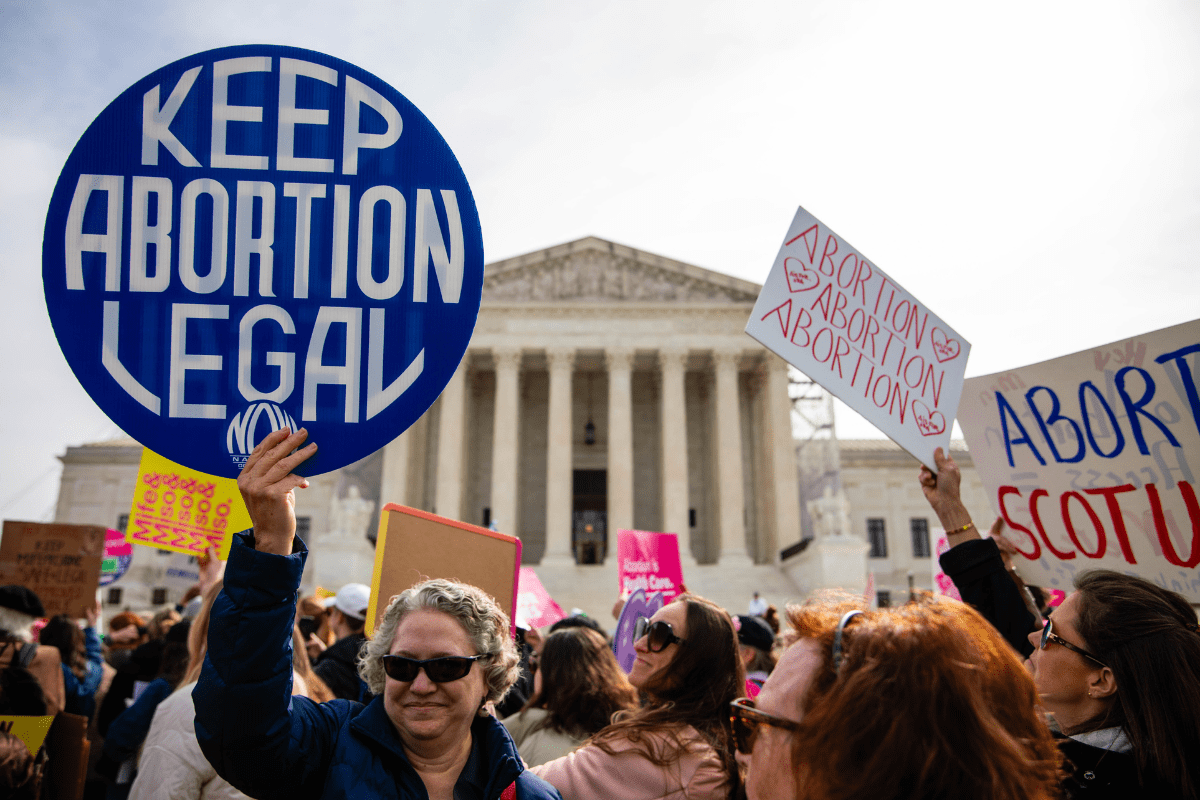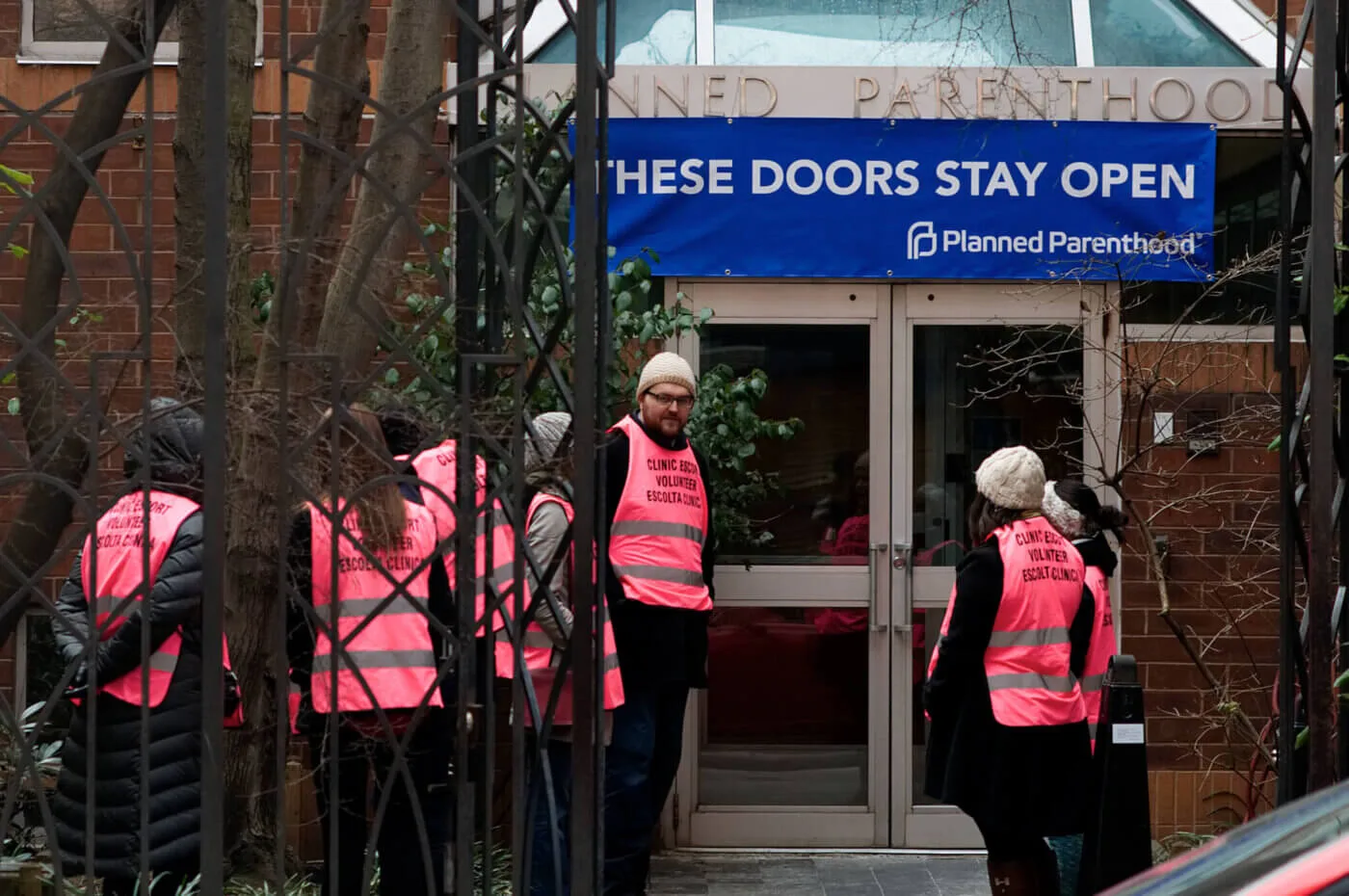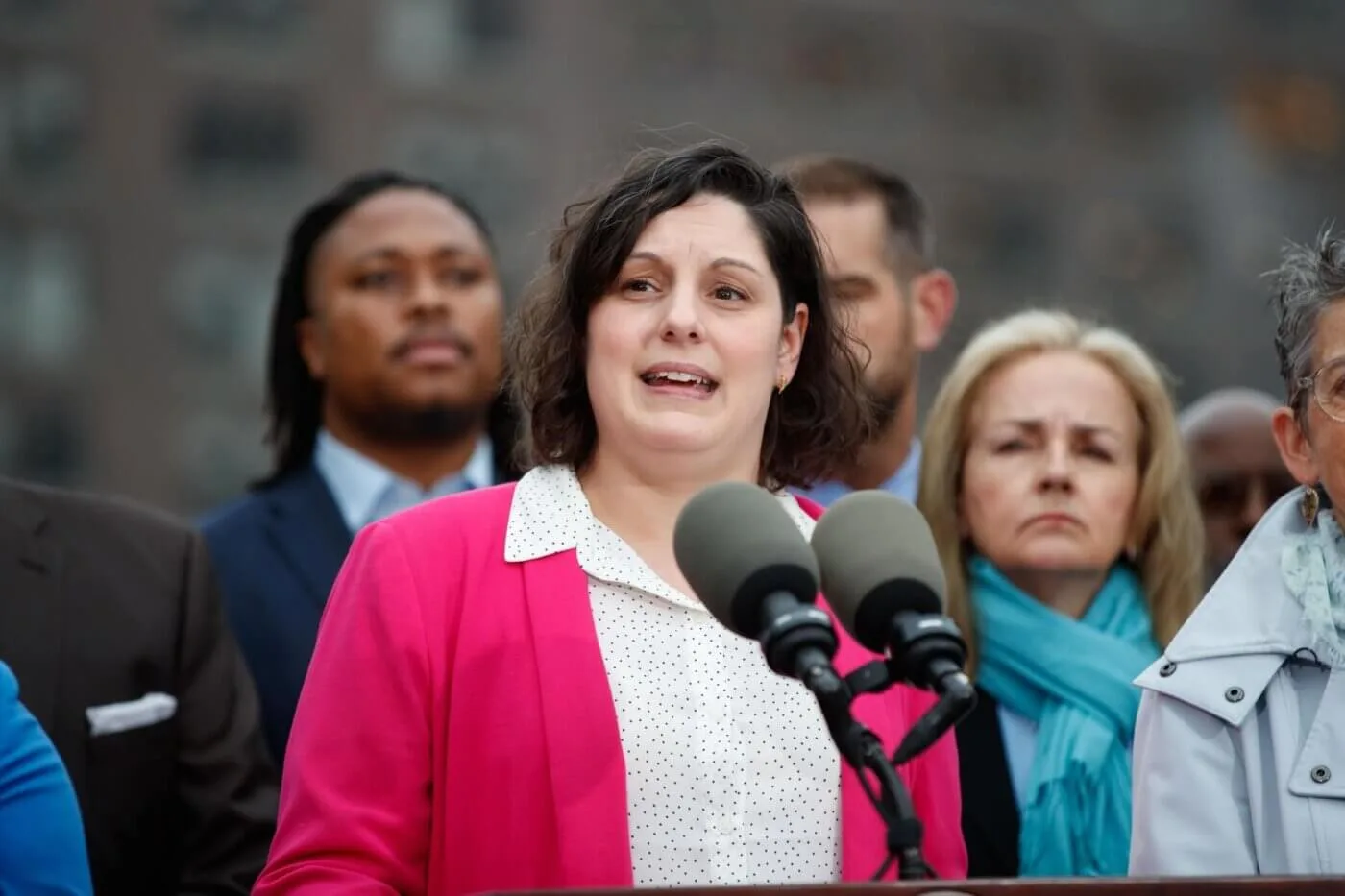
Woman holding a "keep abortion legal" sign outside the US Supreme Court on March 26, 2024. (Photo: Sean Kitchen)
Former president Donald Trump said abortion was a state’s rights issue recently, but conservative organizations, under the banner “Project 2025,” are looking to ban abortion nationally should he win.
Abortion access and reproductive rights will once again be on the ballot in Pennsylvania this fall, even though Democrats control the Pennsylvania House and the Governor’s mansion.
Former president Donald Trump released a video on his social media platform, Truth Social, claiming that abortion rights should be left up to individual states, including the most restrictive anti-abortion bans in the country.
“Many states will be different,” Trump said. “Many will have a different number of weeks, or some will have more conservative than others, and that’s what they will be.”
Trump may be moderating his anti-abortion positions due to the political backlash Republicans have faced since the US Supreme Court—including three Trump appointees—overturned Roe v. Wade.
What isn’t obvious is that right-wing extremists are drafting their own plans to ban abortion and severely restrict reproductive rights on day one of a second Trump term through Project 2025.
Project 2025 is a 920-page “presidential transition project” that’s loaded with hundreds of extreme right-wing policies aimed to completely upend the federal government should Trump win a second term.
This right-wing fever dream is being led by the Heritage Foundation and is supported by far-right organizations such as the Conservative Partnership Institute, Turning Point USA, America First Legal, and the Center for Renewing America.
Project 2025 seeks to ban abortion through a variety of means and by using outdated federal laws such as the 1873 Comstock Act to do so.
Conservatives want rescind the US Food and Drug Administration’s approval of mifepristone—one of two drugs used in medication abortion—and use an 1873 law to ban the mailing of abortion medication, such as mifepristone, or birth control medication. The Comstock Act prohibits the mailing obscene, lewd, lascivious, indecent, filthy, or vile materials.
The Comstock Act would also ban the mailing of “anything designed, adapted, or intended for producing abortion,” which would include not only abortion pills, but potentially medical instruments.
Under such an interpretation of the Comstock Act, any clinic that gets supplies shipped across state lines could be found in violation of the law, even those in states that have protections for abortion in the state constitution.
This would severely limit abortion access in Pennsylvania and prevent women from getting abortion care in states even where it’s legal at the state level.
If mifepristone is banned by the Supreme Court or under the Comstock Act, the share of counties with an abortion provider would drop from 19% to 15% and the share of women of reproductive age living in a county with an abortion provider would drop from 63% to 54%, according to the Guttmacher Institute.
Lastly, Project 2025 calls for the funding of “alternative options to abortion” on the state and federal levels, meaning they want to divert taxpayer funds to anti-abortion facilities that spread medical disinformation.
In Pennsylvania, Gov. Josh Shapiro cut ties with Real Alternatives, an anti-abortion crisis pregnancy center, once their contract with the commonwealth expired at the end of 2023. The anti-abortion organization received over $100 million in taxpayer funds since the 1990s.
Shapiro replaced the anti-abortion funding with the Women’s Health Program, which provides services for parenting or pregnant women across the commonwealth. Services include parental care and postpartum support, early detection and prevention of health conditions, parenting education programming, sexually-transmitted infection testing, and more.
Support Our Cause
Thank you for taking the time to read our work. Before you go, we hope you'll consider supporting our values-driven journalism, which has always strived to make clear what's really at stake for Pennsylvanians and our future.
Since day one, our goal here at The Keystone has always been to empower people across the commonwealth with fact-based news and information. We believe that when people are armed with knowledge about what's happening in their local, state, and federal governments—including who is working on their behalf and who is actively trying to block efforts aimed at improving the daily lives of Pennsylvania families—they will be inspired to become civically engaged.


From clinics to crisis: Pennsylvania women will feel the pain of Medicaid cuts
In Pennsylvania, about one in every five women of reproductive age is enrolled in Medicaid. Dozens of family planning clinics throughout the state...

House GOP fast-tracks budget bill that would cut off Medicaid funding to Planned Parenthood
The budget package proposes steep health care cuts—and includes a new push to block patients from accessing reproductive care. In a 30-24 party-line...

State lawmaker wants to end mandatory counseling and waiting period for abortions in PA
A proposed bill from Democratic lawmakers would remove hurdles to getting an abortion in the state by taking away the currently mandated counseling...

Helping patients get in the door: The role of clinic escorts and the push for stronger legal protections in PA
At reproductive health care clinics across Pennsylvania, patient escorts are the first line of defense for abortion rights. These volunteers put...

Thousands of Pennsylvanians just had their reproductive health care halted by President Trump
Pennsylvania will lose a majority of its Title X funding—the only federal family planning program in the country. Planned Parenthood clinics, county...





